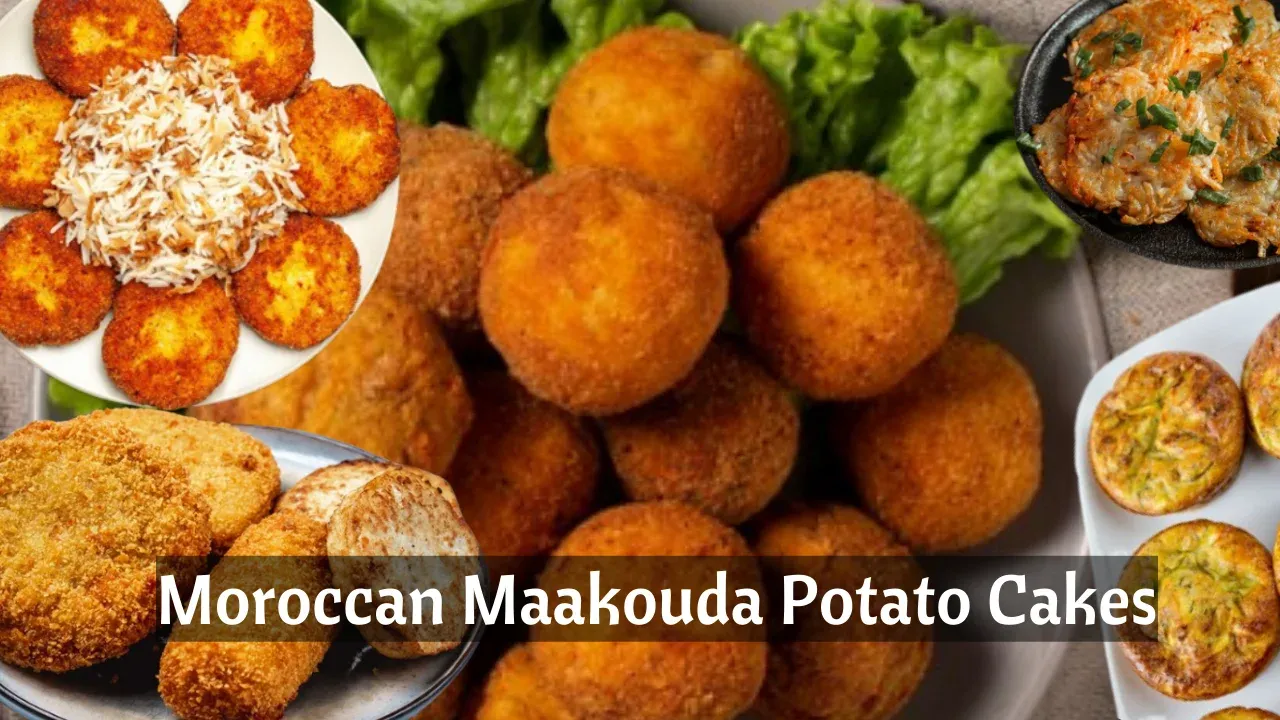Exploring the Uniqueness of Moroccan Potato Cakes
The streets of Marrakech meander through a labyrinth of warm-hued stone, adorned with geometric archways and vibrant markets. The captivating capital of Morocco not only envelops you in the rich scents of orange blossom and saffron but also offers another enticing fragrance. Nestled within the colorful nooks and crannies of this city, as well as in various corners of Morocco, the unmistakable aroma of street food lingers. One such culinary delight that you may chance upon is Maakouda Batata.
Maakouda Batata is a traditional Moroccan potato cake or fritter, meticulously crafted from mashed potatoes infused with a blend of spices, garlic, and freshly chopped herbs. These delectable creations are lovingly deep-fried in oil to achieve a crispy and warm perfection. Comparable fried potato cakes can be found globally, with variants like potato chops in India, potato farls in Ireland, and Rårakor in Sweden.
What sets Maakouda Batata apart is its versatile shape, which can resemble either a circular patty or a beignet. These potato cakes are frequently employed as fillings between slices of khobz, Moroccan bread. Their crispy, fluffy texture, combined with delightful spices, serves as a testament to the warmth and vibrancy of the country.
Flavor Profile and how to make it
- Maakouda Batata is traditionally prepared using mashed potatoes, although some recipes may opt for grated potatoes for a distinct appearance. The potatoes are skillfully blended with gently fried garlic and onions before an infusion of spices, which may include turmeric or cumin, is added, along with fresh cilantro, pepper, and salt. This results in cakes that exude a warm, slightly tangy, and airy character.
- Eggs are incorporated into the potato mixture, and the cakes are then enveloped in a coat of flour before being subjected to the frying process. The outcome is a potato cake that is tender and fluffy on the inside, yet delightfully crispy on the outside.
- Maakouda Batata can be savored as a snack, appetizer, or side dish, often accompanying tagine. It is also common to encounter these potato cakes nestled within small baguettes, accompanied by fresh coriander, tomatoes, or lettuce. Furthermore, they are often enjoyed alongside Harira, a Moroccan dish typically consumed by observant Muslims during Ramadan.
The Tale of Maakouda Batata
- Maakouda Batata is also known by various names, such as Maaqouda, maqouda, or المعقودة in Arabic. While this delectable potato creation can be found throughout Morocco, it holds a special place in the hearts of those in the Maghreb region. This North African territory encompasses Algeria, Tunisia, Libya, Mauritania, and Morocco. There is a bit of debate about whether the dish originated in Algeria or Tunisia, where it's often relished in the form of a large pie.
- The origins of Maakouda Batata are shrouded in mystery, with some speculating that the Berbers, the earliest inhabitants of the Moroccan region, may have introduced it over 2,000 years ago. However, the journey of Maakouda Batata to Morocco is closely linked to the cultivation of potatoes and their introduction to North Africa. Potatoes are believed to have been cultivated in Morocco prior to the French protectorate in 1910, while Algeria started cultivating potatoes in the mid-1800s, a considerable time after the Berbers settled in the area.
- The true origins of Maakouda Batata may forever remain a mystery, but that doesn't diminish the delight it brings. If you happen to find yourself in Morocco, be sure to seek out Maakouda Batata at a local market or savor it at a restaurant. This potato cake is simply too irresistible to pass up.
Culinary Tradition and Cultural Significance
The enduring allure of Maakouda Batata lies not only in its tantalizing flavors but also in the rich tapestry of history and culture it represents. As one indulges in this beloved Moroccan potato cake, it becomes evident that it is more than just a culinary creation; it is a testament to the traditions and influences that have shaped the region.
The tantalizing aroma and unique taste of Maakouda Batata have captivated the palates of locals and travelers alike for generations. As you savor each bite of these crispy, flavorful potato cakes, you become part of a culinary tradition that has endured the test of time.
It's essential to acknowledge the interplay of diverse cultures and historical influences that have contributed to the evolution of this dish. While the specific origins of Maakouda Batata remain a subject of debate, its existence across the Maghreb region serves as a reminder of the interconnectedness of North African cultures.
An Unforgettable Moroccan Experience
In Morocco, Maakouda Batata has not only become a beloved street food but has also found its way into the hearts of many homes. Families pass down recipes from one generation to the next, preserving the flavors of the past while adding their unique touch to this timeless delicacy.
As you explore Morocco, you'll likely encounter Maakouda Batata in a variety of settings. Whether you enjoy it from a bustling market stall, a cozy family kitchen, or a restaurant with a modern twist, you'll discover that it adapts seamlessly to different environments. It remains a symbol of Morocco's culinary diversity, a unity of flavors and ingredients that echo the country's rich history.
So, if you find yourself on the enchanting streets of Marrakech, or in any corner of Morocco, do not miss the opportunity to savor the delight that is Maakouda Batata. With every bite, you'll be indulging in a unique piece of Moroccan culture, a taste of tradition, and an experience that is, without a doubt, 100% unforgettable.

